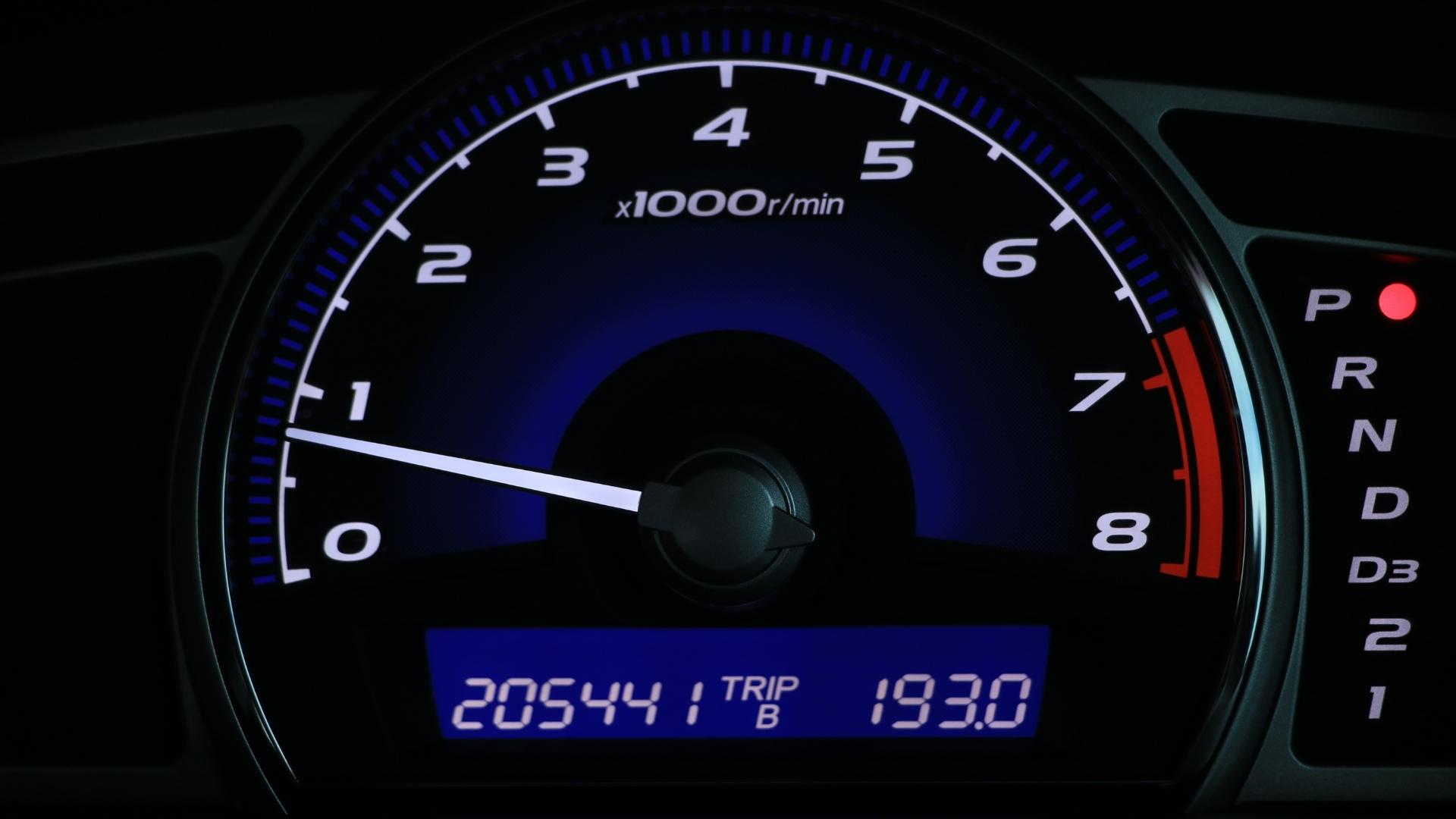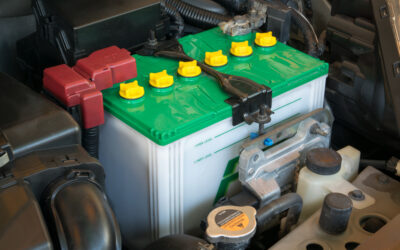Buying a used vehicle is truly a lovely experience. You get to own your dream car for a much lower price. Even with that being said, always be careful. In essence, do not rush to make such purchases as there are several things you always need to consider, the top of the list being mileage.
I know many questions are now running through your mind, but do not worry; we have you covered. In this article, we have expounded on the world of used car mileage. Read through and get informed.
What is Mileage?
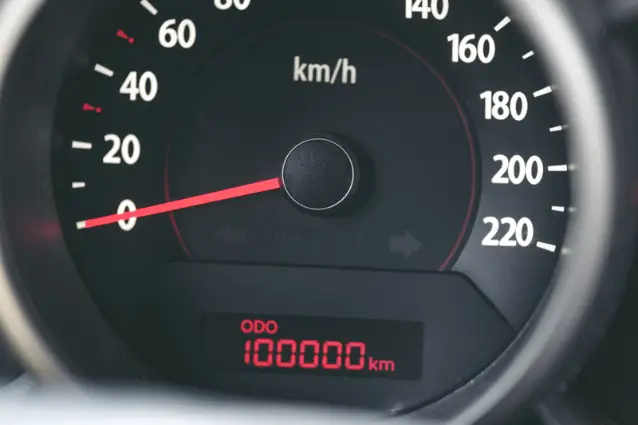
Before we dive into the “deep end” you need to understand the basics, starting with the word mileage itself.
Derived from a unit of measurement (mile), car mileage describes the total distance a vehicle has covered since it was manufactured.
What is a Good Mileage for a Car?
Well, this question is tricky as there is no definite answer. This is because “good mileage” largely depends on the make and model of the car. Some vehicles are built to stand the test of time even after being driven for long distances, while others are not. That is why you may find that a Hyundai Accent, for example, will have a different ideal mileage than a Ford F-150.
All in all, just for clarity, any used car with less than 100,000 km is considered a good buy.
Mileage Vs. Age

If we are being honest, this is probably one of the biggest dilemmas when dealing with used cars. This is because, again, there is no right or wrong choice. Let us break this down for you.
On one end, the distance covered may be more important than age—case in point, Canada. Here the average driver logs about 20,000 km per year. So a car that is five years old will have about 100,000 km on it. See, the vehicle may not be that old, but the number of miles on it may be relatively high. As a result, some clients may shy away from it.
On the other hand, some people may only consider the age and disregard the mileage, no matter how high it is. The reasoning is that a relatively new vehicle with many miles has more to offer than an old one with low mileage.
Pros of Buying a Low-Mileage Car Vs. a High-Mileage Car
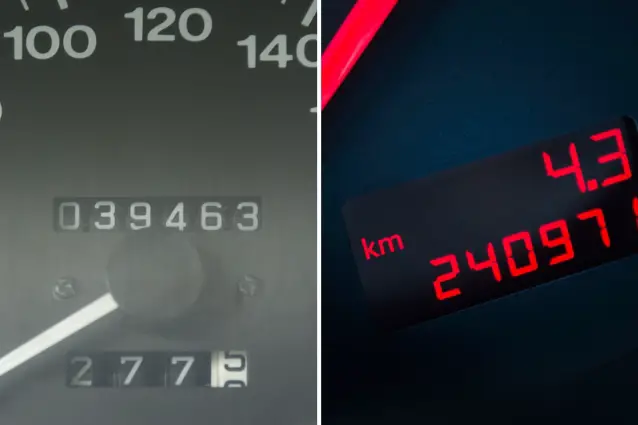
Here are some key benefits of buying a low-mileage car instead of a high-mileage vehicle;
1. Less Wear and Tear
Having covered fewer distances, low-mileage cars are known to have less wear and tear. For that reason, they often have a better outward appearance and are generally in good condition. Therefore, the buyer gets a vehicle for a bargain that is just as good as new.
2. Low Reparation Needs
Low-mileage cars do not need frequent repairs since the car’s parts are still a bit new. Furthermore, it may take a relatively long time before you can even think of replacing a part. This means that you drive around stress-free and get to save money that would have otherwise been used for repairs.
Cons of Buying a Low-Mileage Car vs. a High-Mileage Car

Just like anything else in this world, low-mileage cars too have cons, and they are as follows;
1. More Expensive
More often than not, cars that have clocked fewer miles are priced higher than their counterparts. This makes them not fit in the “budget-friendly” category, which is what many people look for.
2. High Insurance Rates
If you have settled for low-mileage used cars, you will definitely pay high insurance rates. Of course, these charges vary with the insurer. Nevertheless, in almost every instance, the figures will be higher than that of high-mileage cars.
Things to Consider When Buying a High-Mileage Car

As earlier stated, vehicles with high mileage have been on the road for a long time. Therefore, one needs to be keen when buying them.
Here is what to look for when buying a used car that has covered long distances;
1. The Car’s Condition
As we have seen, a high-mileage car will likely have more wear and tear than a low-mileage one. In some cases, you may even have to go for repair services before you can use them. You need to consider such things and make sober decisions based on the situation/vehicle in front of you.
2. Frequency of Use
The frequency you will drive the car is also a key consideration when buying these vehicles. In essence, if you plan to drive regularly, choose one that can go the distance without causing any trouble.
3. Your Long-term Goals
If you want to keep the car for an extended period, look for one that can serve you long. Even though this may be a challenging task, when done well, one can get a proper machine.
Importance of a Pre-Purchase Car Inspection
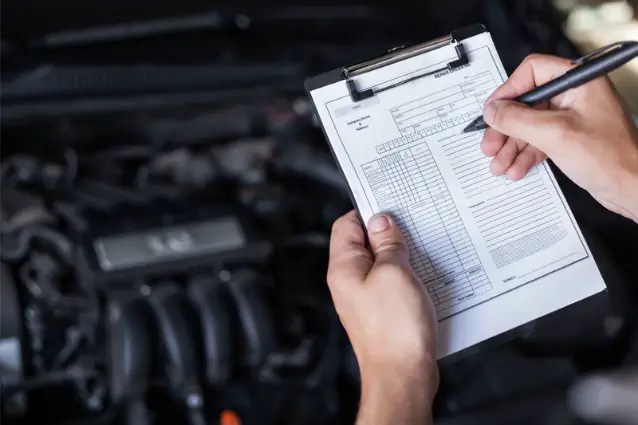
Examining your potential next buy is essential because of the following reasons;
1. Reveals Hidden Damages
Vehicles that have been in accidents or have significant issues are often sold with low mileage to unsuspecting buyers. With a pre-purchase car inspection, this can easily be avoided. This is because the examination reveals all hidden damages. With this, you can easily walk away from a potentially risky purchase.
2. Assess the Vehicle’s Drivability
A proper inspection checks to see if the vehicle you are about to buy is safe to drive. For instance, the examination will check for tire wear, damaged brake pads, and fluid levels. Conclusive results from such assessments will give you a clear picture of whether or not the car is drivable.
3. It Gives you Peace of Mind
Once you have inspected the vehicle and know it is in good condition, you can relax and enjoy your new car.
Conclusion
This mileage topic evokes different reactions from different people. However, the facts are plain and simple. All you have to do is put those highlighted here together and make informed decisions based on the vehicle you would like to buy.
If you feel a bit overwhelmed by all this, you can always carry an expert when purchasing a used car. They will thoroughly inspect the windshields, consider the mileage, and do much more. This is all in a bid to help you make the right choice.

